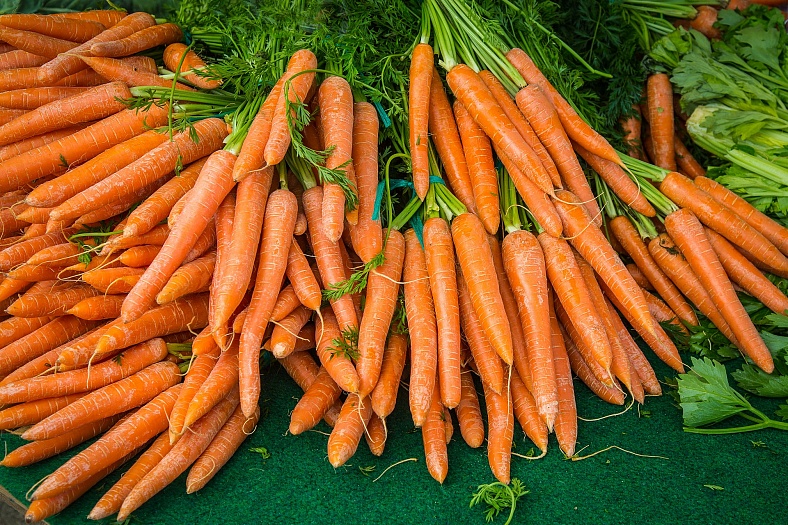Postharvest handling of carrots
19.01.2022 | Carrots
Agrovent employees who specialize in vegetable storage have a mantra: The basics of long-term storage of any vegetable are laid from the field. It's like the multiplication table - wake up us even at night and the answer is immediate! Joke.
In this article, we have compiled all the most important tips and nuances for getting a high quality root vegetable with a good shelf life.
Let's skip the sowing period and go straight to the harvest. Ideally, a week or two before harvest, balance the "nutrition program": reduce nitrogen levels to reduce the risk of post-harvest bacterial damage.
If watering is reduced closer to harvest to minimize the amount of sand or soil lifted with the crop, it's important to make sure the root crops don't start to dry out.
Carrots destined for storage should be harvested when mature. Root size usually determines when to harvest carrots. Early harvesting sometimes means lower yields and therefore lower profits. If harvesting is delayed, it is important to control leaf disease and control root disease levels to avoid serious yield losses.
The risk of bacterial damage is greatly increased in carrots harvested in hot weather. If this is the case, the crop should be harvested when it is cooler (e.g., in the morning). Harvesting early in the morning will reduce dehydration and give the carrots time to cool down.
So, here are the top most important tips for harvesting carrots:
- In cold, wet weather, harvesting damage can cause serious losses, especially in susceptible varieties. It is best to postpone harvesting if possible.
- Harvest in clean baskets and crates. This will minimize the spread of disease.
- Minimize drop height. Excessive drop heights result in bruises and wounds. Adjust the height of machines in the field and on the packing line to reduce fall height. Carrots that fall at the beginning of the packing line should be lined to eliminate bruises, cracks and scuffs that serve as an "entry point" for rot-causing fungi and bacteria.
- Transport carrots carefully - avoid excessive shocks and jolting in containers to reduce bruising and splitting. In hot weather, cover carrots with a tarp during transport.
- Never keep harvested carrots in the sun. Shading will reduce dehydration. Heated carrots lose quality and dehydrate faster.
- Cool carrots immediately after harvesting. Proper post-harvest refrigeration extends shelf life and improves product quality, and greatly reduces the risk of post-harvest diseases.
The minimum requirements for storing carrots are that they must be whole, healthy, clean, unaffected by disease, pests, mold or rot, with no extraneous odor or taste. Shelf life depends on temperature and humidity.
- At 20°C and 60-70% relative humidity, carrots store for 2-3 days.
- At 4°C and a relative humidity of 80-90% carrots store for 1-2 months.
- At 0°C and relative humidity over 95% carrots are stored for up to 6 months.
- Pre-cooling to 0°C and relative humidity of 90-95% are prerequisites for long term storage. Ideally, carrots should be cooled to this temperature within 24 hours of harvesting. The recommended temperature for storage is 0 to 2°C.
Carrots are susceptible to dehydration. Dehydration of the partially removed outer skin (periderm) of carrots results in silvering (white plaque). Further dehydration leads to the development of a brown layer in the tissue underneath the periderm. The use of liners during storage and transportation increases moisture retention and reduces dehydration.
Washing and polishing with a brush removes the periderm from the carrots, solving the silvering problem, but exposing the root vegetables to the risk of damage, resulting in oxidation of the internal tissues. And the whole danger is that the browning usually doesn't develop immediately, but only when the carrots hit the store shelf after a period of cold storage. Of course, the buyer will not be particularly interested in buying brown carrots.
Still have questions? Or do you need a vegetable storage for carrots? Call +74952293903 or email info@agrovent.com!

